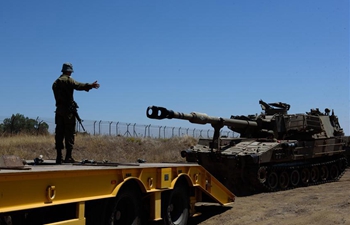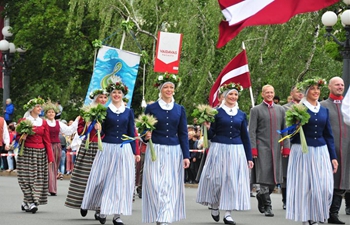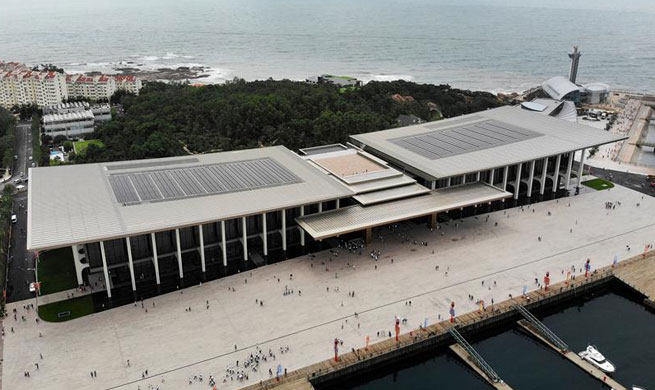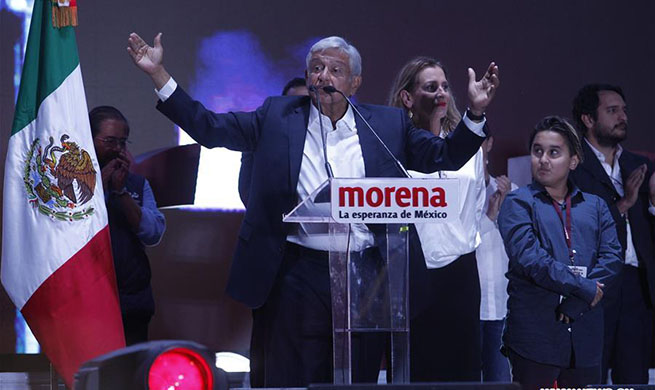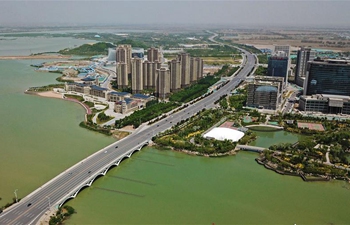SANAA, July 2 (Xinhua) -- The UN special envoy to Libya arrived in Yemen's rebel-held capital Sanaa on Monday to meet with Iranian-allied Shiite Houthi rebels in order to avoid the conflict over the control of the Red Sea port city of Hodeidah.
The visit by Martin Griffiths came after his series of intensified negotiations with Yemeni exiled President Abd-Rabbu Mansour Hadi in the southern Yemeni temporary capital of Aden, as well as with the leadership of the Unites Arab Emirates (UAE) in Abu Dhabi and Saudi leaders in Riyadh.
On Sunday, UAE Minister of State for Foreign Affairs Anwar Gargash tweeted that the UAE welcomes "continuing efforts" by the UN envoy to achieve an "unconditional Houthi withdrawal from Hodeidah."
"We have paused our (military) campaign to allow enough time for this option to be fully explored," Gargash said.
The U.S.-backed Arab military coalition forces led by Saudi Arabia to back Hadi have been fighting Iranian-backed rebels since March 2015 to restore Hadi to power.
Saudi Arabia and the UAE have demanded Houthis fully withdraw from Hodeidah and hand over their ballistic missiles.
Mahdi al-Mashat, president of the Houthi-run Supreme Political Council, welcomed the UN envoy's efforts.
"Our missiles will not be handed over. Instead they will be on standby to hit Riyadh and Abu Dhabi," Houthi-controlled state Yemen television quoted al-Mashat as saying late Sunday.
The new UN peace efforts came after Abdulmalik al-Houthi, chief of the Houthi movement, declared on his group's satellite TV channel al-Masira that he agreed to place the management of Hodeidah port under the UN supervision.
Saudi Arabia accuses Houthis of smuggling in Iranian missile technology and weapons through Hodeidah port, which has been denied by both Houthis and Iran.
On June 13, the Saudi-led coalition forces started a major offensive to recapture Hodeidah port.
The assault was met with deadly resistance from Houthi fighters, who tightened control over the strategic port city and the Red Sea western coast.
Backed by heavy airstrikes, warships and up to 21,000 soldiers, the coalition has managed to control a southern part of Hodeidah airport and parts of remote villages along the western coast south of Hodeidah city.
Humanitarian agencies have warned of any military action in the country's third largest city with a population of 600,000.
In the past weeks, airstrikes and ground clashes near Hodeidah have forced thousands of people to flee their homes.
Non-official statistics estimated that more than 150,000 residents have fled Hodeidah to the far cities of Aden, Ibb, Dhamar and Sanaa.
Saudi Arabia intervened in Yemen's civil war in March 2015, after Houthis seized many populated cities in the north and forced Hadi along with his government into exile in Riyadh.
UN agencies reported that the war has killed more than 10,000 Yemenis, mostly civilians, and displaced over three million others.





